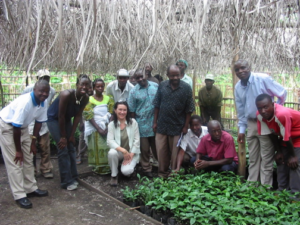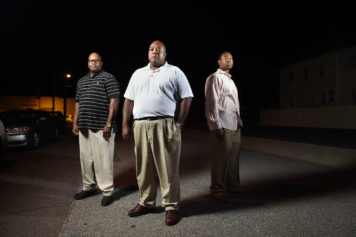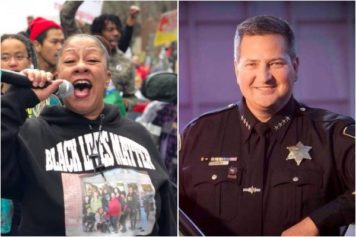Like a gambler lost in the pretense of winning money, I was once blinded by a need to acquire shiny new things. I sought therapy in consumerism and believed that material objects would add to my appeal. In a scurry to build a better me, I ambushed stores and loaded plastic bags with flashy jeans and expensive sneakers.
I tried to establish my identity through the quicksand of materialism, but all I did was expand the void within me.
My sister, who was my legal guardian at the time, made it clear that she was appalled by my spending habits. In a fit of rage she said, “You don’t know how to save!” and “When you get money, it’s as if money is fire in your hands!” I pretended to be shocked, but deep down I knew she was right.
Over time I realized that objects were just blockages preventing me from recognizing my self-worth. I developed a subjective definition of minimalism which embraced the intellectual and spiritual freedom associated with owning less. Instead of seeking clothing, jewelry, and purses, I came to value friendships, family, travel, and hobbies. I came to love everything that I could experience.
I will never forget my trip to Uganda back in 2005 where I met people who owned very little, and yet seemed to be filled with great joy; each one of them had an inner beauty that radiated outwards, and touched me gently on the cheek.
But how can owning less be liberating? Well, it removes the attachment to material things and creates a world where experiences inform happiness. In this world, happiness is about connecting with a lover after a long hiatus, laughing with friends without checking the time, or hiking in the park just as summer melts into fall.
In this elevated state of living — or the life of a minimalist — life is lived deliberately and experiences are savored through memories that we can recall just by closing our eyes. Here, character becomes the central tenet, and possessions are just part of a superficial facade. The focus is not about lining one’s wardrobe with a particular brand of shoes, but instead lining one’s character with admirable traits. The person beneath the “stuff” becomes the most important piece of this picture, and life becomes about expanding the complex layers of the individual.
Minimalism drives a change in one’s perspective of the world and consequently one’s lifestyle. One may discard of unnecessary items and resist buying luxuries. “Decluttering” is a cleansing process which destroys the link between self-esteem and material objects. Frequently, the unhealthy inner dialogue regains power:
Perhaps I will look a little sexier if I get that purse instead of this one. Maybe I will land the woman of my dreams if I show up in a convertible. Perhaps I will get that promotion if I invest in the right suit.
Minimalism turns into a quest to redesign this inner dialogue.
One blogger suggests that members of the Black community “Just want to buy things that are pretty, carry status and make us feel better.” Possibly, there are some who are locked in a cycle of “materialistic consumption.” Sometimes, behavior driven by consumerism is related to a fear of losing money. Events of the present day inform us that Black assets have a tendency to be destroyed, devalued, or vanish because some banks fail to value the financial interests of Black communities.
If my money will just disappear anyway, I may as well spend it on things that will give me immediate gratification.
Indeed, a report issued by the American Civil Liberties Union (ACLU) states that between 2007 and 2009, wealth declined for both Black and white people. However, Black people experienced significantly larger losses in wealth due to high interest payments on loans. Many Black households were forced to “raid their retirement accounts” unlike white households. Black people were placed in a position of economic disadvantage because of predatory lending by banks. And so for many, home ownership or the quest to build wealth, has been anything but liberating.
One solution is for Black people to consider borrowing money from Black banks as a means to securing a home or opening a savings account. Indeed, OneUnited Bank is one of many Black-owned banks offering financial services to Black communities. Further, homeownership is not incompatible with minimalism: a home becomes a space to create memories, a safe and secure retreat, and an asset to be passed down through generations.
Some may argue that the opportunity to embrace minimalism becomes a luxury limited to the privileged. Here, one chooses to walk away only after he or she has had ample time to enjoy material goods and reach a level of satiation.
An article in Time magazine refers to Joshua Fields Millburn, 33, who discovered minimalism after his mother died and his marriage ended in the same month. As a consequence of these life-changing events, Millburn experienced a significant change in his values. Now a minimalist, Millburn spent his late twenties earning a six-figure salary. It seems minimalism is an easy pursuit for those who have a choice.
How can minimalism be liberating for those who are forced to live with very little in the first place?
One problem with minimalism is that it assumes that one has the choice to own less, for many this isn’t a choice, but a forced circumstance. For those living in poverty, owning less becomes a prerequisite for survival.
Importantly, the definition of minimalism is nuanced and not limited to purging everything you own. Minimalism encourages one to think analytically about spending behavior. This means that for some minimalism is a process of seeking and acquiring money with the goal of being liberated. This may involve creating a fund where members of communities donate small amounts with the aim of rebuilding the community. Money may be spent on books for schools or computers for a local youth center. It may take years before the fund is able to generate tangible results, but in the process of assembling this fund communities learn the value of collective action, staying committed to a goal, and the long-term benefits of choosing to spend money wisely.
Of course, minimalism may not be the solution for everyone, but for some it could function as a means to liberation.



